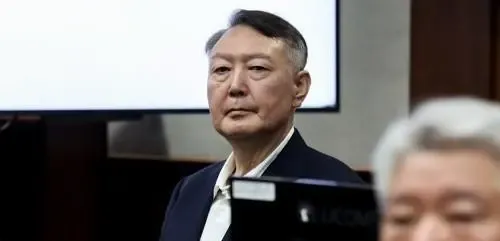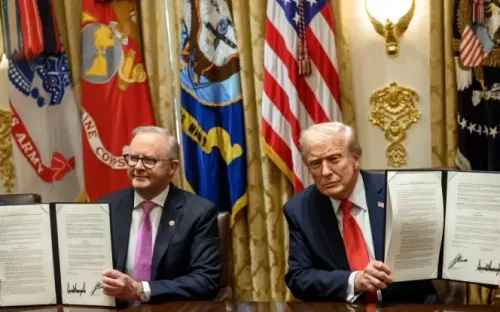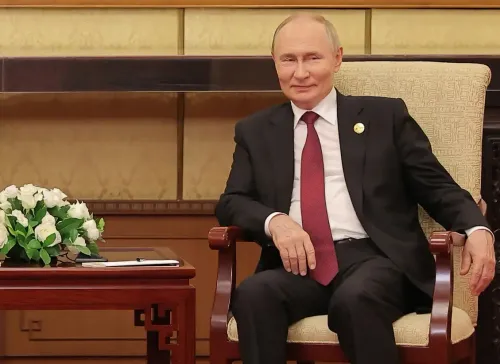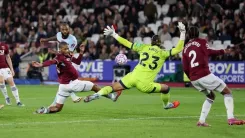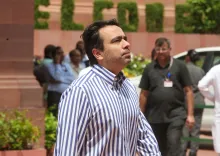Did Trump Order a Strike on a Venezuelan Drug Vessel?
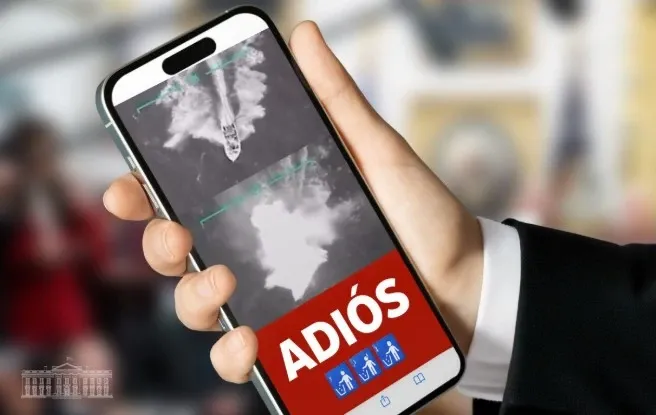
Synopsis
Key Takeaways
- President Trump ordered the destruction of a Venezuelan drug vessel, resulting in 11 deaths.
- Secretary Rubio described the action as an escalation against drug cartels.
- The Pentagon has not released evidence supporting the strike.
- Legal experts have questioned the legality of the action under international law.
- This operation may reshape US approaches to combating drug trafficking.
Mexico City, Sep 4 (NationPress) US Secretary of State Marco Rubio has stated that American forces had the capability to intercept a Venezuelan ship suspected of transporting illegal narcotics. However, President Donald Trump opted for its destruction, leading to the unfortunate fatalities of 11 individuals.
"Rather than interdicting the vessel, on the President's directive, we eliminated it — and this will not be the last time," Rubio informed reporters in Mexico City on Wednesday (local time), justifying what he termed an extraordinary escalation.
The strike, characterized by the US as a precision operation, took place on Tuesday in the Caribbean Sea.
Rubio noted that traffickers received no forewarning as "a vessel laden with cocaine or fentanyl" constituted "an immediate threat to the United States."
"This President is not merely a talker; he is a doer; he will take action," Rubio remarked.
Trump asserted that the crew of the vessel were affiliated with Tren de Aragua, a Venezuelan gang that Washington has classified as a terrorist organization, claiming that "substantial quantities of drugs" were located on the ship.
"We possess recordings of their communications, and you can observe the bags of narcotics throughout the vessel," the US President told reporters in the Oval Office.
Thus far, the Pentagon has not disclosed evidence or specifics regarding the strike, nor clarified the rationale behind choosing lethal force over interception.
Defense Secretary Pete Hegseth indicated that US operations targeting cartels will persist.
"Anyone else involved in trafficking in those waters whom we identify as a designated narco-terrorist will meet the same destiny," he affirmed.
Nonetheless, this action has drawn significant backlash from legal experts who have raised concerns regarding its legality under international law. Mary Ellen O'Connell, a professor of international law at Notre Dame, commented that the attack "breached fundamental tenets of international law," asserting that the US had "no right to deliberately kill these suspects."


